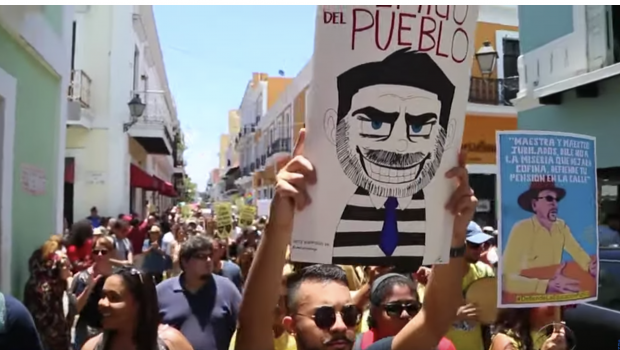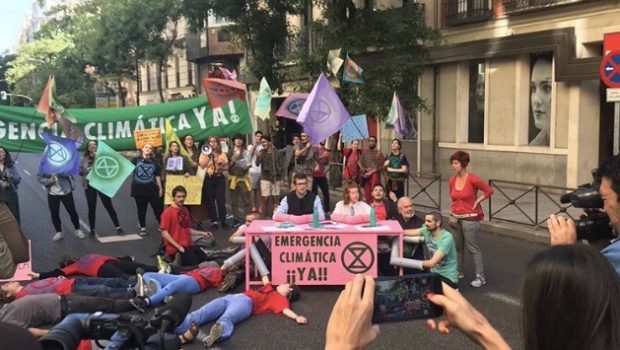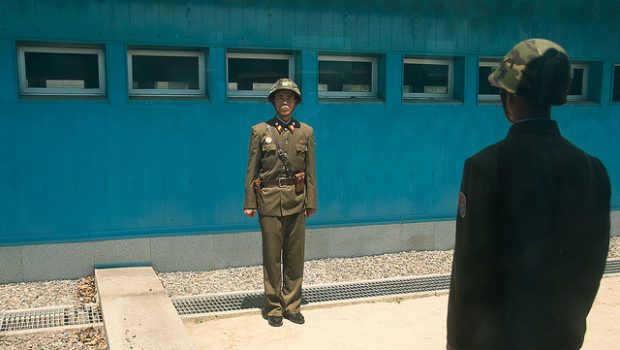The Rule of Law: Hernando de Soto
Gustavo Wensjoe
Gustavo Wensjoe: Your work is renowned worldwide; it is such a pleasure to have you here.
Hernando de Soto: Thank you
GW: Could you please summarize what the core principles or the objectives of The Institute of Liberty and Democracy are?
HS: Basically it has to do with the genesis of law. In other words, it is accepted worldwide—with the interjections of a few anarchists here and there—that the rule of law is crucial for the coordination of people in this crowded earth. We’re governed by rules, and this begs the question: when do people begin obeying rules? To answer that, one must first understand which rules we are talking about. We define the market and the democratic societies as those which obey a series of very particular rules that relate to elections and participation on the political side. On the economic side, they relate to property rights and ownership, as well as the use of property rights to obtain credit, capital, and the capacity to organize privately for production, combination and recombination. Having established that these are the rules constituting the rule of law, the question then becomes: how many people abide by these rules that Western civilization has given to the world? A hundred and fifty years full of colonialism and imperialism, wars, imitation and cultural migration have passed. Western civilization is basically the only civilization left. Included are these different cultural varieties, but the world is predominantly Western. Even the Chinese and Japanese are Western. Therefore, we return to the question: Is everybody obeying the rules? If we take roll on who abides and who doesn’t, we find that easily two thirds of the world do not abide by these rules of property, business etc. We ask ourselves, what’s missing? What does it take to get started? Because it’s obvious that people want the rules. We see all these numerous Latin Americans migrating to the US, or all these North Africans migrating to Europe, so why can’t we make the rules stick back home? It is inevitable that they’ll do eventually, and until then, I believe the fact that they don’t is a source of war, conflicts, illegal markets, drugs and all those bad things in life. This has been a long answer, but in short, it is the genesis of law. What makes law stick, and what makes it start in societies, or in those parts of society today that don’t seem to abide by the law? What does it take to generate it?
GW: Why have Latin American countries fallen behind in terms of the rule of law?
HS: Well, firstly, we think that it has to do with the fact that they have bad law. Bad laws exist due to the fact that they have good lawyers. They argue instead of making good laws. Secondly, they think of law as something written down as a norm that has authority. We think that law is more than that. Law is something that’s easy to follow, and that presents itself in ways that are accessible. We discovered this when we were invited to evaluate countries in Latin America. It was not until we implemented changes that citizens were able to live outside the law. It took years for a person to gain legal rights to their home, or 278 days would have to pass for someone to have the legal authority to work a sewing machine. What I mean is that it takes 8 hours a day for 278 days to process red tape for it; that´s a very unfriendly law. That means that, while we may be able to draft very good laws on paper, we are terrible at making them practical. Why are they bad? We think it has to do with how law is generated, and how much of it exists in the first place. It’s not easy to count laws, by the way. For example, Peru produces 28,000 norms a year, that’s a 106 per working day. Having an influx of 106 rules per working day, there is simply no control to be had. How do you check up on that? How do you effect benefits? How do you find out if you’re just generating additional paperwork, or whether your law is not just favoring certain interests? Therefore that’s a bad legal system. We think that the root of the problem is deeper than this, but we don’t get involved with it, because it’s not productive for our goal of correcting bad political systems. Ultimately, lawyers do not make laws; they are created by a political system, which obviously doesn’t improve, examine, certify, evaluate or score these laws appropriately. That’s why Latin America produces bad legislation and regulation.
Now, part of the population of Latin America has managed to tame bad laws for their particularly interests. So, for example, if you ask me about my life in Peru, I would say it isn’t that bad thanks to my access to certain services from law firms. I could probably get my passport quicker than an American does. I can probably get to a Peruvian airport quicker than I can to an American. In Latin America there is a westernized class that looks out only for their own interests and makes laws safer, or at least appropriate, for their specific goals. Latin Americans don’t need the democratic voice: we’ve got the contacts. We have the access to the media while the majority of the population doesn’t, the problem in Latin America is not Latin Americans, it is the gap between the Latin Americans who access law and know how to handle it and the Latin Americans who don’t.
GW: Does the fact that we have a privileged vs. marginalized class undermine the rule of law in terms of Latin America?
HS: First of all, there’s no doubt that the marginalized class is living outside the law, and consequently, lacks the instruments to balance the scale of law. It’s not that they cannot coordinate among themselves, because we know each and every one of our neighbors, but the strength of a market economy lies in coordination with people you don’t know. You can buy something from China from someone you’ve never faced, whose hand you’ve never shaken. You don’t need a personal relationship to perform in a market because the documentation, the legal system, protects you in doing business at a long distance. There’s a good 80% of Latin Americans who are still into bartering. These people suffer as a result of that in the sense that they have low productivity, low benefits, they live off of less that we do, they are unhealthy, have less chances for any kind of diversity, entertainment, medical attention… all those things. That, of course, makes things pretty unstable for the remaining 20, 10 or 5%, depending on the country you’re in.
When communism was around, there were exports from the Soviet Union and from China shaking things up. Afterwards, communism and the Soviet Union went away, and capitalism spread all over the world. This rude awakening allowed the existence of people like Hugo Chavez, who strongly believes that social differences do count and have legal relevance, commanding the support of the majority of the electorate. In other countries, there were many that did not buy into the global system, believing that capitalism doesn’t work for the poor, and they nearly won elections in Mexico and Peru. Mexico and Peru came very close to have governments similar to those of Venezuela, Bolivia or Ecuador. That is very significant, we bear that internal problem. However, it’s not just a Latin American problem, it’s a Chinese problem, an African problem, an Indian problem, and it’s a Middle Eastern problem, as well as a former Soviet Union problem. It’s a class problem. In short, this isn’t exclusively Latin; there are many countries that remain estranged with development, like us.
GW: What is it that is meant by the terms formal or informal sectors? How has law impacted those sectors differently?
HS: The term informal economy is just an euphemism for the extra-legal economy: those who live outside the system. Those who live outside the system have been forced to create their own system. They only take parts from the law, that which they find convenient, and consequently live in a society that is full of corruption. When you have bad laws, it invites corruption, which we define as the buying of the law, or of the enforcement of the law. That’s what corruption is about. You don’t go and buy people; you buy people’s capacity to enforce the law. So even if most of these people are not criminals, it creates a space that is inviting drugs, terrorists and several other bad things. It affects the formal sector, as it obliges them to spend time looking at rules to compensate for this lawless void. In some surveys that we did in Peru early on, we found out that 90% of the managers of enterprises that were outside Lima lived in the capital, and not in the city where their factory was. In other words, it was much more important for a general manager to be close to where the rules were made rather than to be supervising the business itself.
If you look at an average American, with their brown suits and ties, having dedicated their career to be specialized in water coolers, if you will, you find that they are people constantly looking for productivity. By contrast, Latin Americans are mostly concerned with public relations. We’re much smoother than they are. We get appointed the Secretary General of the United Nations without any problems. We’re very kind and courteous and wordy in and outside of the airport: cómo está usted, qué gusto, cómo le va, bien gracias, cómo está usted su merced. We’re much more polite than they are because we need public relations. Most Americans, or Swiss, or Germans are just dedicated to their productivity. They aren’t as nice as we are because they focus on production. This phenomenon forces Latin America to preserve medieval habits: pre-industrial revolution habits, which are concerned with the cultivation of public relations, instead of following rules. As a result, both our formal sector and our informal sector are much poorer that those of the developed countries like the US.
GW: In developed countries, you have the legal framework that forms a constant. In developing countries, many irregularities in the legal framework hinder development because you have to use a lot of resources to use, comply or manipulate the legal framework. Would it be correct to say that providing stable rules and a steady legal framework is the foundation of a market economy? Does this solve development challenges?
HS: I would say yes, what you say would imply that we’ve gone all the way, because essentially, development is about the rules of exchange. Look, here we are at your office and I can challenge you to find one thing that’s been made by one person alone, and you’ll find nothing. As I was saying at the lecture today, even a pencil takes 160 companies to put together. You have the lead that comes from Sri Lanka, the wood that comes from the cedars in Oregon, the pigment that comes from China… You need cooperation. How do you cooperate with those who are not your neighbors? Only through the rule of law. That’s what does the trick. It may be true that if I go to see an American dentist, I can get better dental work than in Peru, even though we have the same machines. Yet in some cases, I’d rather see a Peruvian doctor who will give me more time and care than an American who will see me as a number going by, you know? In terms of automobiles, a Volkswagen on the streets of Lima is the same Volkswagen as one in Washington. Ideas reproduce themselves as fast as rabbits do; ideas are cheap and technology is cheap. The problem is the rules. You would be surprised to find that in Peru, we’re even more advanced in certain aspects. Nowadays, it’s hard to find a land registry that it isn’t fully computerized or digitalized in Peru, whereas I could find places in the US where the same is not true. And the reason for that is simple. Since the US has millions of records, the digitalization of them is very tough. Yet, in Peru there are only thousands, and we’ve been able to digitalize quicker. So it’s not a problem of who’s got a computer. The problem is law. Once you get the legal thing going, you’ve gone all the way.
GW: Currently, the rules of the game are believed to lack balance and fairness in Latin America. So if you want to institute the rule of law with a population that is difficult to convince, how you can convince someone to be incorporated into the formal sector?
You can’t convince them because they’ve made the correct choice by staying outside the law. If you don’t have contacts or resources in Peru, it’s in your best interest to stay outside of the law. You’re not going to be helped. You’re going to be beat up. You’re going to come to corrupt courts and be found guilty. There’s no way you can really win. The choices are to stay out of the law or migrate to the US. What you have to do to fix this is to make it understood that what is being called law now is actually bad law. The situation in Latin America is not that we have good laws that people disobey, it is that have bad law, which everybody disregards. Even multinationals don’t like the law. If you’re an American and if you want to invest in Peru, the first thing you’re going to lay your hands on is a bilateral investment treaty, so that you’ll get privileges. You don’t take the routes Peruvians need to take. You’re going to go in and you’ll say: “I’ll invest in Peru, I’ll stabilize labor, I’ll add a security from the World Bank and I’ll go to the OPIP who will give me another warranty. What will Parliament give me in return?” You’ll get concessions, privileges, rights and guarantees that no Peruvian has. Nobody likes Latin American law, so you either stay outside of it, or if you’re a foreigner, you get privileges under bilateral trade agreements. That’s what you do. That is bad law. The question we face is: how do we start producing good laws? The answer to that will cause a major revolution. The answer will truly effect change.
Posted: April 13, 2012 at 9:56 pm










